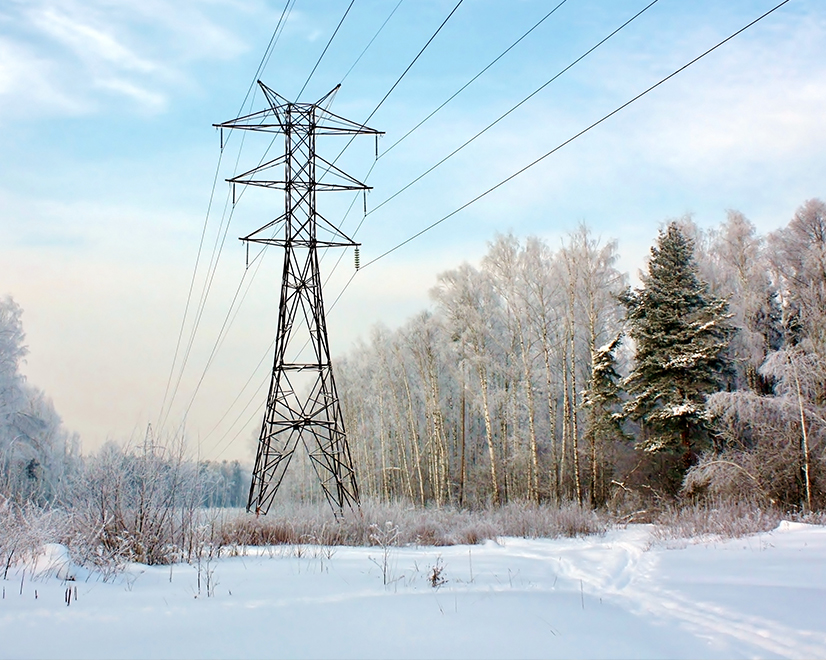NERC on Wednesday issued a Level 2 alert, its third of the year, with a series of recommendations and questions “intended to evaluate the bulk electric system’s winter readiness.”
The content of the alert is public, unlike previous alerts this year on securing critical defense facilities and responding to the cyberattack on Microsoft Exchange Server, believed to be the work of a China-sponsored hacking group. (See FERC, E-ISAC Report Details Reach of SolarWinds Compromise.) Responses — but no other actions — are required from balancing authorities, generator owners, reliability coordinators and transmission operators by Sept. 17.
In the alert, NERC cited the January 2018 cold weather event and this February’s winter storms as the justification for quizzing registered entities on their winter preparedness. The former event saw MISO and SPP seek voluntary load reductions and nearly forced load shedding in MISO South. (See FERC, NERC to Probe January Outages in MISO South.) February’s storms left thousands without power for days in Texas as multiple generating resources failed across the state. (See ERCOT: Grid was ‘Seconds and Minutes’ from Total Collapse.)
The events in Texas catalyzed the accelerated passage of NERC’s new cold weather standard at the organization’s Board of Trustees meeting in June. (See NERC Board OKs Cold Weather Standards.) At that meeting Howard Gugel, NERC’s vice president of engineering and standards, said that an alert was likely to come soon, along with other short-term measures aimed at ensuring reliability in the next two winters because the standard would not take effect for 18 months after FERC approval.
“The recent extreme cold weather events across large portions of North America have highlighted the need to assess current operating practices and identify some recommended improvements so that system operations personnel are better prepared to address these challenges,” NERC said. “This Level 2 alert serves to help registered entities better prepare for the upcoming winter months.”
Recommendations for Planning, Preparation
NERC’s first recommendation urges RCs, BAs and TOPs to prepare seasonal operating plans, or update existing plans, at least two months before the upcoming winter season. Plans should include:
- energy constraints for the upcoming season;
- identification of resource startup time and variability concerns;
- import capability of the system and resource availability constraints on external systems during extreme winter weather events;
- load forecasting practices that account for extreme events;
- plans to utilize extra transmission capacity by calculating transmission limits based on real-time system conditions;
- plans to weatherize substations and equipment;
- plans to seek temporary relief from local, state and federal environmental guidelines;
- protocols for communication with government, media and the public; and
- plans for communicating with natural gas providers, assessing natural gas availability, and coordinating gas and electric interactions during emergencies.
GOs are recommended to review these plans to ensure their assumptions about generator availability, fuel supplies, and other related matters are correct; to take action to facilitate readiness as needed based on weather forecasts and energy analyses; and to stay in contact with fuel suppliers to manage resources efficiently. Those with wind and solar resources are advised to communicate with RCs, BAs and TOPs about those units’ cold weather capabilities.
Another recommendation for GOs is to communicate forecast and actual unit derates during extreme cold weather events, considering unavailability caused by weather, fuel constraints, derates for alternate fuels and concerns about delayed start or increased outage based on unit ratings and historical performance. RCs, Bas and TOPs should incorporate the GOs’ derate information into their generation capacity and energy analyses and operating plans.
NERC also recommends that RCs, BAs and TOPs ensure their manual and automatic load shedding plans “review critical interdependent sub-sector electrical loads … to avoid being included as part of automatic … or manual load shedding,” and that this review be factored into seasonal preparation plans. Entities should confirm and test their manual load shedding process periodically and track demand response capability and verify that critical interdependent subsector loads are excluded.
Finally, the alert advises GOs to conduct dual fuel assessments “to ensure resources can switch to the alternate fuel,” monitor how much alternate fuel is on site, assess generating unit weatherization plans, and inspect and maintain their weatherization measures ahead of the winter season, as well as before and during extreme cold conditions.
Entities Must Assess Readiness
Also in the alert are questions for each recipient type. For RCs, NERC asks whether the organization has developed — or intends to develop — operating plans that are “closer to real-time (2-3 days ahead),” along with the content of those plans.
NERC asked the same question of BAs and TOPs, along with whether their organizations have “analyzed electric import capability for widespread, extreme, multi-day weather events.” BAs are also asked whether their organizations conduct seasonal energy and capacity assessments for normal and extreme cold scenarios at least two months before the winter season.
Additional questions for TOPs include whether they conduct transmission system seasonal assessments such as “weatherization of substations and equipment, maintenance and testing of voltage reduction equipment, assessment of transmission and generation outages, and transfer capabilities during outages that could limit transfer capability and/or resource availability.”
The questions for GOs are the lengthiest, covering communications with fossil fuel and natural gas suppliers on fuel supply and pipeline stability; weatherization and availability of fossil fuel-, solar- and wind-powered generating units; and processes for obtaining emissions waivers if needed to operate.
Entities are required to acknowledge receipt of the alert by midnight EDT, Aug. 23; responses to NERC’s questions must be submitted by midnight EDT, Sept. 17.




